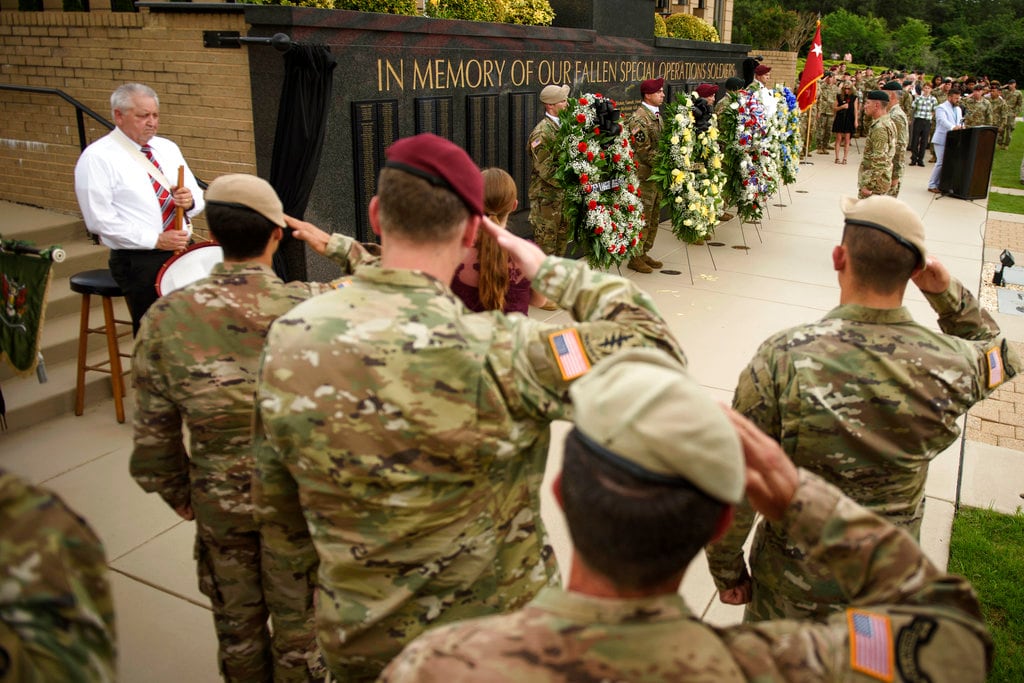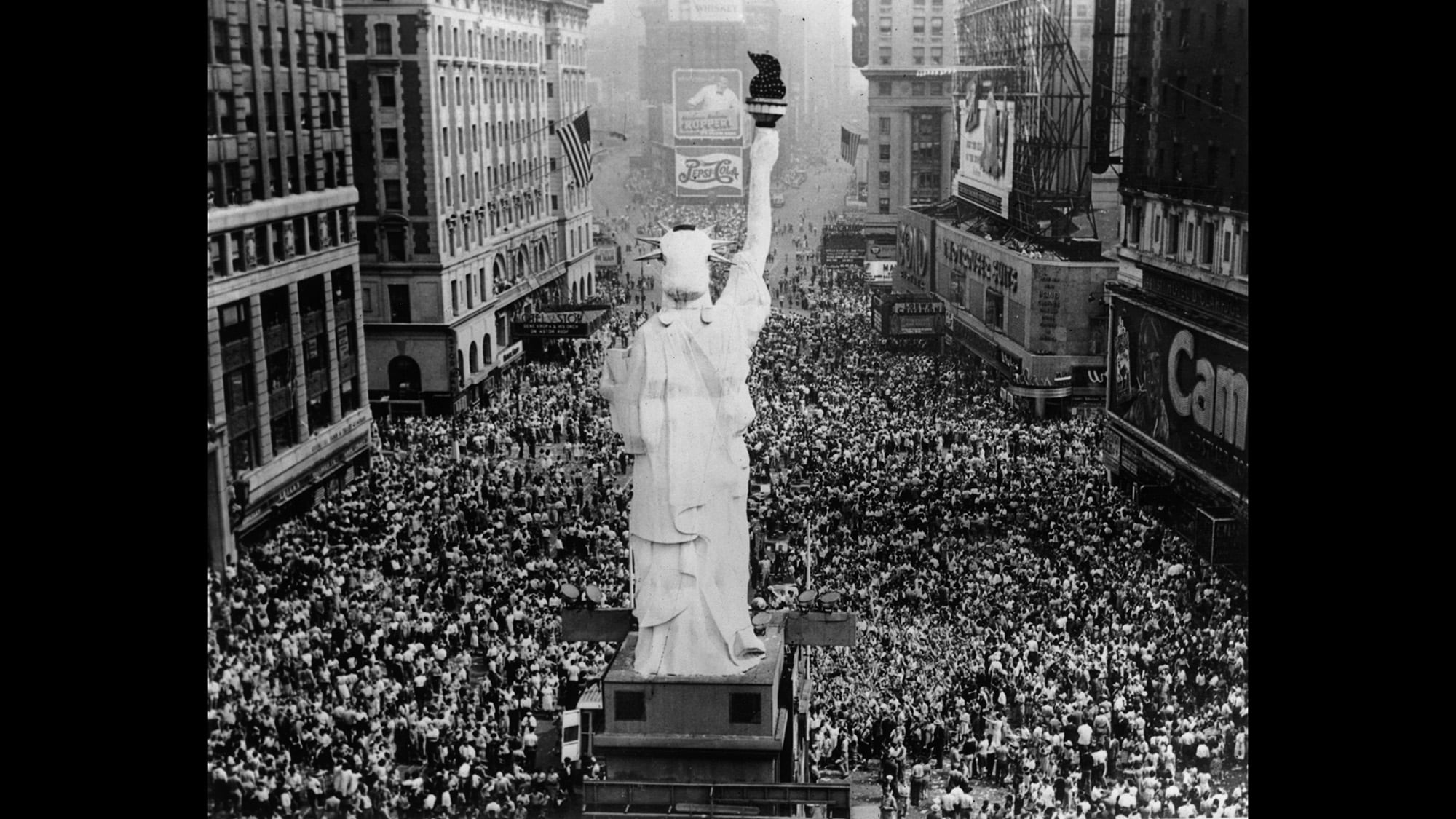Service in our armed forces leaves one with memories of seeming miracles, of sorrows, of loss. The ‘Why?’ of the events behind these memories often have no answer. They are memories that can bring thankfulness, and also memories that can cripple the soul, and leave wounds that may never heal in this life.
Desert Storm, February 1991
I was the fire support coordinator for the 6th Marine Regiment, and a member of the Forward Command Post, integrated into one of the regiment’s battalions for the breech into Kuwait through an extensive Iraqi minefield. On 24 February, the beginning of the ground war, our battalion engineers began clearing a lane through the minefield. The rest of the battalion, including my team in two soft skinned Humvees, formed into a column and, following the engineers, moved into the lane. The engineers hit a snag before clearing was complete, and the column stalled. Iraqi artillery began to impact to our left, close to another battalion’s breeching lane. A few moments later, before our counterfire shut down the Iraqi artillery, an artillery round hit to the right of our vehicle, close, with the concussion of the round rocking our vehicle. Astoundingly, no shrapnel hit the vehicle, and no casualties.
Days later, my senior NCO, Gunnery Sgt. Robert Fisher (a Marine more than my equal), myself, and 2 other Marines were going through an Iraqi bunker filled with artillery shells. As we moved cautiously through the bunker, Gunny Fisher roared “STOP!” I froze and looked at the Gunny, who said “Sir, look at your left hand.” About 3 inches from my hand, in the direction it had been moving, was a trip wire. The bunker was wired to explode. The Gunny had saved our lives. We exited the bunker, reversing our path.
Operation Balkan Calm, Kosovo, 1998
I was the operations officer for the Kosovo Diplomatic Observer Mission (KDOM). Our team was comprised of active duty and Reserve members from the Marine Corps, Army, Air Force and Navy; State Department civilians, local civilian translators and unarmed local security personnel. In addition, members of the Canadian military integrated into our team. U.S. and Canadian military members were unarmed, wore civilian clothes, and carried diplomatic passports. Our mission was to observe and report on the conflict taking place between the Yugoslavian military and, primarily, the Kosovo Liberation Army. We were not to be seen as taking sides, and although our team included a Navy medical doctor and an independent duty corpsman, we were not authorized to provided medical assistance to persons on either side of the conflict, military or civilian.
We sent out observation patrols daily. The patrols were in armored SUVs equipped with radios. A patrol would also include one or more hand-held radios, and each U.S. and Canadian member carried a cell phone. As the operations officer, my main responsibility was to ensure proper risk assessment, and coordinate patrols and associated activities from a small command center. At least once a week I would also participate in a patrol in order to maintain situational awareness.
On one patrol we entered a small village that had been shelled by Yugoslavian artillery on the previous night. The patrol included our corpsman. We entered a small house that had been set up by a local doctor and residents to treat wounded civilians. The wounded were laid out shoulder to shoulder on the floor of the houses' main room, on either side of a path kept clear through the center of the room. The smell in the room was that smell recognized by those who have encountered bodies broken, shattered, opened by shrapnel. As we observed the wounded, one of the casualties, a lady, looked at me, lifted her arm, pleading for help. The agony of her, and of all the wounded, was difficult to bear. We moved into a smaller room and met the doctor, who was treating a young child, torn by shrapnel, wrapped in bandages, shaking. His mother stood by, with a look that broke one’s heart, and eyes and expressions that begged for help. The doctor explained that he had no medicine to treat the wounded, and that the young child would probably die. As I looked at the child, I saw my youngest son, Bryan, and felt the agony of the mother. (Little did I know that, years later, the image I saw of Bryan in that dying child would become an agonizing reality.) My corpsman had a haunted look on his face — we were under orders not to provide what he was dedicated to giving. Even if we broke those orders, we did not have the medical supplies the child needed. That day, a day in which he was unable to help a dying child and his desperate mother, stayed with my corpsman, and I think it broke him. I learned later that the wounds to his heart and mind sustained in Kosovo rendered him unable to continue to serve.
Our patrols witnessed atrocities and/or their results on an almost a daily basis. As military members trained to use force of arms, not being able to exercise force to stop these atrocities drained the soul. A month or so into our mission, one of the US military officers broke, and was medevaced out of country.
As my time with KDOM was coming to an end, I had trained my replacement, and scheduled myself into on last patrol with our Canadian partners. As with all patrols, a risk assessment was done prior to departure — all patrols had to be within acceptable risk. Before the patrol departed, our team commander, Air Force Lt. Col. “Moon” Mullins, came to me and said “I have a bad feeling about this patrol.” I responded that the risk assessment was acceptable. His reply: “I have a bad feeling. I can’t order the Canadians not to go, but I can order you: do not go with the Canadians.” This “ordering” was a first, but I replied “Got it.” The Canadians left with one of our translators. A short time later, we received a desperate phone call from the Canadians: they had been ambushed. They had hit a land mine that flipped the vehicle on its hood, radios were inoperable, patrol members were injured, and they were being engaged with small arms; the cracks and impacts of rounds could be heard in the background. Once their position was pinpointed, I contacted a local Yugoslavian military officer in command of a mobile unit, informed him of the situation and ‘ordered’ him to respond and assist my patrol. He immediately complied. When all was said and done, if Moon had not ordered me to not go, I would have been sitting in the patrol vehicle over the point of mine blast penetration. If I had gone on the patrol, I would have been killed in the ambush.
Tongo Tongo, Niger, Oct. 4, 2017
My son Bryan was a U.S. Army Special Forces medic, a member of Operational Detachment Alpha (ODA) 3212. ODA 3212 and an accompanying Nigerien platoon-sized unit were ambushed by an overwhelming enemy force possessing superior firepower and mobility. ODA 3212, isolated, had no support to call on. In spite of ODA 3212′s ferocious response, Bryan and 3 of his teammates, along with a number of Nigerien soldiers, were killed. My vision of Bryan in the dying Kosovo youngster had become a reality.
RELATED

Why?
What is the ‘Why?’ of these events that impacted my military life, the 'Why? of these memories? Why did the shrapnel from the artillery round not hit our vehicle? Why did the Gunny see the trip wire? Why did that mother in Kosovo have to suffer the agony of seeing her son wounded, see him die, and why were we put into a position to observe without the ability to help? Why do some military members manage the horrors of war, and why do some succumb to its nightmares? Why was I spared death in an ambush, while my son and his teammates were not? When ODA 3212 was ordered to execute the mission to Tongo Tongo, why was there not a Gunny Fisher to say “STOP!,” why was there not a Moon Mullins to say “I have a bad feeling about this mission; I order you not to go?”
More than any, I wrestle with the last two questions, pain piercing my soul. And although time lessens the frequency of pain, when pain comes, the level is undiminished. And sometimes, at night when I am alone, in quiet times, in my mind I see my youngest son dead on the battlefield, and I wrap him in my arms and tell him I’m sorry I couldn’t protect him. And I weep.
RELATED

I am not alone in my memories, and in my pain. Other veterans have suffered the same, with the pain of some exceeding my own — such as the friend I have who carries wounds in his body and soul, sustained in a kill zone as he pulled a friend and teammate to safety, only to have that friend die in his arms.
Those of you who have not served, when you see a veteran, know that they may carry memories similar to, or more agonizing, than the ones I carry. Be thankful for them. If they are rough, be gracious. If they are hurting, be compassionate. And if they need a hand, offer it. Remember what they have given up, what they have sacrificed, for the freedoms you enjoy. And if, perhaps, you ever see those freedoms threatened, remember the veterans, and what they have paid for those freedoms, and, in your own way, join the fight.
Henry Black is a retired Marine Corps major. His son, Staff Sgt. Bryan Black, a Special Forces medic, was one of the four U.S. soldiers killed in Niger in October 2017. Black is currently an analyst for the FBI and lives in Washington state with his wife, two daughters-in-law, one son and four grandchildren.
Editor’s note: This is an Op-Ed and as such, the opinions expressed are those of the author. If you would like to respond, or have an editorial of your own you would like to submit, please contact Military Times managing editor Howard Altman, haltman@militarytimes.com.










